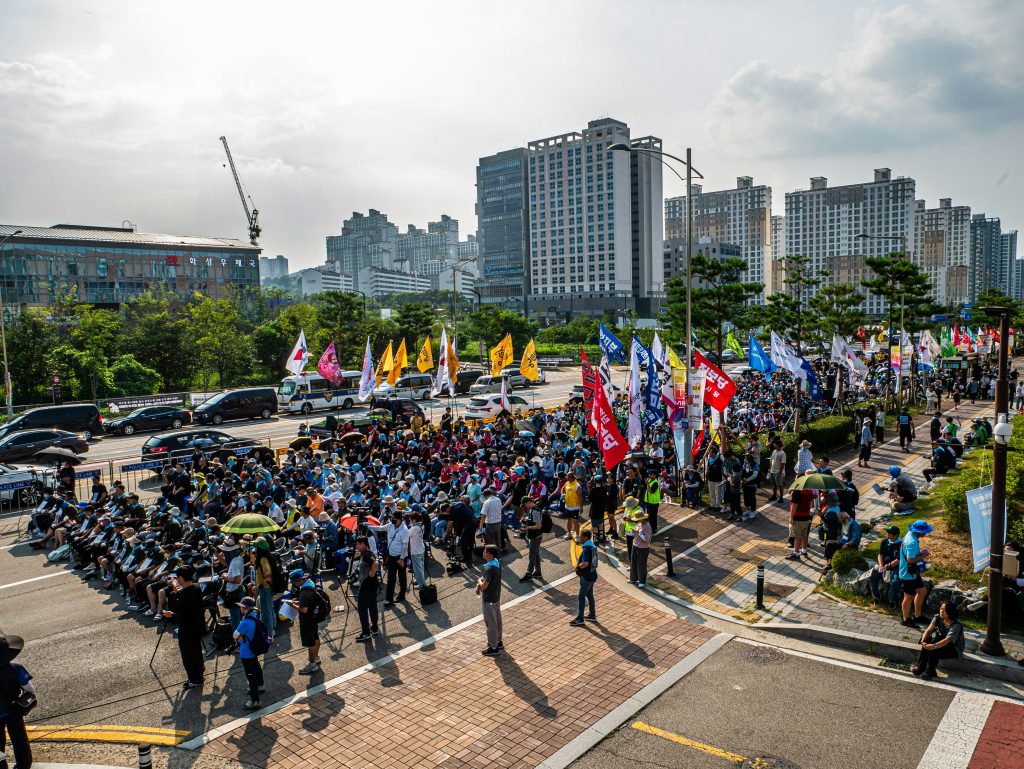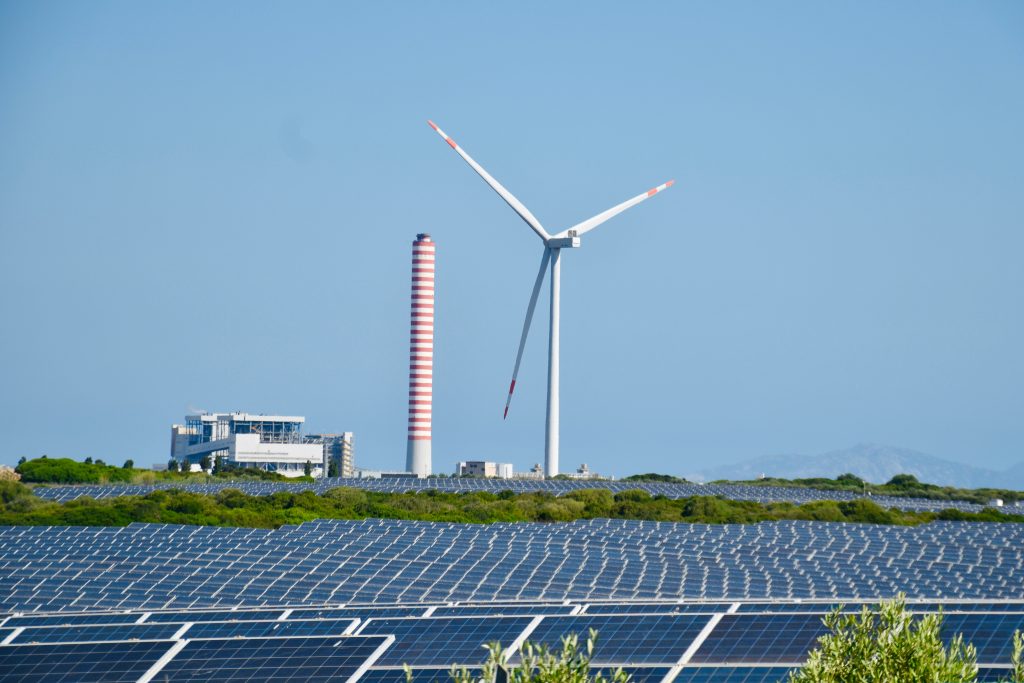Understanding Labor Day: More Than Just a Summer Send-Off
Labor Day, celebrated on the first Monday of September, is often viewed as a festive marker of summer’s end, a day for barbecues, beach trips, and a final chance to bask in the warm weather. However, this national holiday encompasses a far deeper significance that pays tribute to the American workforce and its historical struggles for rights and recognition.
The origins of Labor Day trace back to the late 19th century, during a time when labor movements gained momentum in the United States. This era was marked by harsh working conditions, long hours, and minimal pay, prompting workers to unite and advocate for their rights. The first Labor Day celebration was held in New York City in 1882, organized by the Central Labor Union, and it soon spread nationwide, recognized as a day to honor the contributions of American workers.
Today, many Americans embrace Labor Day as a well-deserved break from their daily grind. It has evolved into a symbolic farewell to summer, with families and friends gathering for picnics, parades, and various recreational activities. Yet, while it serves as a day of leisure, it is vital to remember the historical context that this holiday represents. It is a day dedicated to acknowledging the achievements of workers who fought tirelessly for fair labor practices, paving the way for the rights and protections enjoyed by employees today.
As we enjoy this holiday, it is an opportunity to reflect on the ongoing challenges that workers face, including the fight for fair wages, job security, and safe working conditions. With the rise of the gig economy and remote work, the labor landscape continues to evolve, yet the essence of Labor Day remains the same: it is a moment to celebrate the spirit of hard work and the collective efforts that have shaped the workforce.
In conclusion, as you bask in the sun this Labor Day, take a moment to appreciate the labor rights that many have fought for and the impact of collective action in achieving them. This holiday is not just a day off; it is a tribute to every worker who has contributed to the growth and development of our society, making it a day of both celebration and reflection.
Tags: American workers, Labor Day, Labor Day meaning, Labor Rights
UAW President Shawn Fain Addresses Democratic National Convention, Advocates for Worker Rights
In a powerful address at the Democratic National Convention held in Chicago, UAW President Shawn Fain delivered a passionate message about the importance of union support and workers’ rights. Fain emphasized the critical role that unions play in empowering the working class, asserting that Vice President Kamala Harris has shown unwavering support for labor unions and the needs of everyday workers.
Fain’s speech came as the United Auto Workers union continues to navigate a complex political landscape, particularly in the lead-up to the 2024 elections. He drew attention to the connection between political leaders and the labor movement, highlighting how essential it is for politicians to stand firmly with the working class. “We need leaders who will stand shoulder to shoulder with us, not just during election season but every day of the year,” Fain declared, rallying the audience’s enthusiasm for a stronger labor movement.
Using stark language, Fain did not shy away from criticizing former President Donald Trump, referring to him as a ‘scab’—a term used to describe workers who break picket lines during strikes. This metaphor reflected Fain’s view that Trump and others like him serve the interests of the wealthy elite rather than the working class. He also condemned Republican Senator JD Vance, labeling him as a ‘lap dog for the billionaire class.’ Such remarks underscore Fain’s commitment to advocating for the rights and dignity of all workers, as he urged those in attendance to support candidates who genuinely prioritize labor rights.
Fain’s participation in this high-profile event marks a significant moment for the labor movement, as he represents a growing tide of union activism across the United States. The UAW has been at the forefront of labor negotiations, and Fain’s leadership has been pivotal in mobilizing union members and their allies to advocate for better wages and working conditions.
The atmosphere at the convention was charged with energy, as Fain inspired unity among attendees, calling for collective action to ensure that working-class voices are heard in the political arena. He encouraged Democrats to recognize the importance of labor support in winning elections and to commit to policies that benefit all workers, not just a select few.
As the Democratic Party gears up for the upcoming elections, Fain’s message resonates deeply with the electorate, particularly among union members and working-class voters. His call to action serves as a reminder of the critical intersection between labor rights and political power, and the necessity for continuous advocacy for the rights of workers.
In conclusion, Shawn Fain’s address at the Democratic National Convention not only highlighted the urgent need for labor support in politics but also set the stage for a renewed commitment to the fight for workers’ rights. As the political landscape evolves, Fain’s leadership within the UAW will undoubtedly play a crucial role in shaping the future of labor advocacy in America. The labor movement is more than just a response to economic challenges; it is a vital force for social change, and with leaders like Fain at the helm, it is poised to make significant strides in the coming years.
Tags: Democratic National Convention, Labor Rights, Shawn Fain, UAW
UAW President Shawn Fain Takes Center Stage at DNC, Criticizes Trump and Champions Union Support
In a powerful display of solidarity and political fervor, United Auto Workers (UAW) President Shawn Fain made headlines at the Democratic National Convention, held in Chicago. Fain’s presence was not merely ceremonial; it was a clarion call for union support and a fierce denunciation of former President Donald Trump. Addressing an audience of Democrats and labor supporters, Fain emphasized the importance of unions in elevating the voices of working-class individuals, asserting that Vice President Kamala Harris would be a staunch ally for labor rights.
Fain’s rhetoric was sharp and unyielding, as he labeled Trump a ‘scab’—a term traditionally used to describe workers who cross picket lines during strikes. This provocative language underscored Fain’s commitment to holding political figures accountable for their actions in relation to labor rights. Throughout the 2024 election cycle, Fain has consistently used this terminology to draw stark contrasts between the interests of labor and the agendas of what he describes as the ‘billionaire class.’
The UAW leader’s address resonated with many in attendance, as he connected the dots between union strength and the broader political landscape. He articulated how the rights of workers are intrinsically linked to the health of democracy, urging attendees to consider their votes carefully in the upcoming elections.
Fain’s speech was not just a diatribe against Trump; it was a rallying cry for workers everywhere. He positioned the UAW not only as a labor organization but as a powerful political force that can influence the direction of policy and governance. The call to action was clear: the labor movement must unite to ensure that the voices of workers are heard and prioritized in the political arena.
As the Democratic National Convention progresses, Fain’s remarks will likely serve as a touchstone for discussions around labor rights, economic justice, and the role of unions in contemporary politics. His ability to galvanize support among Democrats and labor advocates alike highlights the growing intersection of labor issues within the broader political narrative leading into the election year.
With the stakes higher than ever, Fain’s leadership and the UAW’s active engagement in the political process signal a renewed commitment to fighting for the rights of workers and ensuring that their interests are front and center in the national conversation. The UAW’s stance against Trump and his associates, whom Fain referred to as ‘lap dogs for the billionaire class,’ reflects a growing discontent with the status quo and a demand for a more equitable economic system.
As the convention unfolds, Fain’s words will undoubtedly resonate with many voters who are seeking change and a reaffirmation of their rights as workers. The UAW’s mobilization efforts, combined with Fain’s fiery rhetoric, suggest that labor will play a crucial role in shaping the outcome of the 2024 elections. The question now remains: will the Democratic Party rise to the occasion and embrace the labor movement in a way that honors the struggles of working-class individuals across the nation?
Tags: Democratic National Convention, Donald Trump, Kamala Harris, Labor Rights, Shawn Fain, UAW
UAW President Calls Out Trump as a ‘Scab’ at DNC, Igniting Social Media Debate
In a significant moment during his address at the Democratic National Convention, United Auto Workers (UAW) President Shawn Fain made headlines by labeling former President Donald Trump a ‘scab.’ This term, typically used to describe workers who cross picket lines during strikes, has sparked a heated discussion across social media platforms. Fain’s remarks resonated particularly within the labor community, reflecting the ongoing tensions between union members and those perceived as undermining their efforts.
Wearing a shirt emblazoned with the term, Fain emphasized the importance of solidarity among workers, particularly in states that have historically supported the Democratic Party, often referred to as the ‘blue wall’ states, including Michigan and Pennsylvania. His strong words about Trump being a ‘scab’ were not just a personal attack but a broader commentary on the former president’s policies and actions that many union members believe have harmed their interests.
Fain also praised current Vice President Kamala Harris as a ‘fighter’ for the working class, contrasting her dedication to labor rights with Trump’s record. The UAW, which boasts over a million active and retired members, is at the forefront of labor rights discussions, especially as the automotive industry faces critical changes and challenges, including the push towards electric vehicles and the implications for jobs.
The debate around the term ‘scab’ has historical roots in labor movements, where crossing picket lines is viewed as betrayal to fellow workers. Fain’s usage of this term highlights the deep-seated frustrations that many union workers feel towards those they believe do not support their rights and livelihoods. As the conversation continues to unfold online, it has opened a dialogue about the role of unions in the modern workforce and the ongoing struggle for worker rights in the face of political opposition.
As the DNC progresses and the 2024 elections loom, the intersection of labor issues and political rhetoric will undoubtedly remain a focal point for both parties. Fain’s remarks have not only invigorated supporters but also reignited discussions about the labor movement’s future and its impact on American politics.
In summary, Shawn Fain’s bold statement at the DNC has reverberated through social media and labor communities, serving as a reminder of the critical role unions play in advocating for workers’ rights and the challenges they face from political figures who may undermine those efforts. As the UAW continues to navigate this complex landscape, the implications of these discussions will likely shape the narrative leading up to the next presidential election and beyond.
Tags: DNC, Donald Trump, Labor Rights, Scab, UAW
AOC Delivers Passionate Speech at Democratic National Convention
In a striking moment at the Democratic National Convention, a prominent New York Congresswoman delivered a passionate and powerful speech that resonated deeply with attendees and viewers alike. This marked her first major convention address, and she seized the opportunity to articulate her vision for the future of America, while also addressing ongoing attacks from the Republican Party.
The Congresswoman took to the stage with a commanding presence, emphasizing the importance of unity within the party as they rally behind their candidate. Her endorsement of Kamala Harris was not just an act of political solidarity, but a clarion call for the values that the Democratic party stands for. She articulated a vision of progress that is rooted in justice, equality, and a commitment to labor rights, highlighting the need for a government that truly serves its people.
As she spoke, the atmosphere in the convention hall electrified with support. Her words resonated with many who have felt alienated by the previous administration’s policies. This speech was not merely a political endorsement; it was a rallying cry against the backdrop of a tumultuous political climate. By criticizing the former president, she painted a stark contrast between the values of the Democrats and the Republican agenda.
The Congresswoman did not shy away from addressing the former president’s contentious legacy, pointing out how his actions could jeopardize the very fabric of democracy. She asserted that if he were to be re-elected, he would be willing to sell the nation’s interests for a mere profit, invoking imagery that struck a chord with her audience. This bold statement served to remind listeners of the stakes involved in the upcoming elections.
Her speech was characterized by a strong emphasis on labor rights, a topic close to her heart. In her view, the working class should not only be heard but should also be prioritized in policy-making. This message resonated with many viewers who have faced economic hardships and are seeking representation in government.
In her conclusion, the Congresswoman reiterated the importance of coming together as a party and as a nation. She urged everyone to mobilize, participate in the upcoming elections, and ensure that their voices are heard. Her impassioned delivery left a lasting impression, as she reminded the audience that the fight for a better future is a collective responsibility.
This moment at the DNC will surely be remembered as a pivotal point in the campaign, showcasing the spirit and determination of those who stand for progressive values. The Congresswoman’s ability to connect with the audience and articulate their hopes and fears reflects the changing landscape of American politics, where new leaders are rising to the forefront, ready to make their mark.
Tags: AOC, Democratic National Convention, Kamala Harris, Labor Rights, Republican Attacks
UAW Files Labor Charges Against Trump and Musk for Intimidation
In a significant move reflecting ongoing tensions between labor unions and high-profile business leaders, the United Automobile Workers (UAW) union has filed federal labor charges against former President Donald Trump and Tesla CEO Elon Musk. This action comes in response to a livestreamed conversation where both figures allegedly made comments that were interpreted as threats towards UAW members. The union argues that the remarks made by Trump and Musk during their discussion could be seen as intimidating, undermining the rights of workers to organize and engage in collective bargaining.
UAW President Shawn Fain expressed strong condemnation of the comments, stating, “When we say Trump stands against everything our union stands for, this is what we mean. Donald Trump will always side against the working class.” This statement underscores the union’s belief that Trump’s past and present actions are detrimental to labor rights and protections.
The union’s legal complaints have been directed to the National Labor Relations Board, echoing concerns over the influence that powerful figures like Trump and Musk may have on labor dynamics within the automotive industry. The UAW emphasizes that such intimidation tactics are not just harmful to individual workers but also threaten the integrity of union representation as a whole.
The livestream, which touched on various topics, saw Trump praise Musk for firing employees involved in strikes. This endorsement of aggressive management tactics has raised alarms among labor advocates, who view it as an attack on the fundamental rights of workers to protest and demand better working conditions.
This situation highlights a broader conflict between labor unions and corporate leaders, particularly in industries undergoing significant transformations, such as the automotive sector amidst the rise of electric vehicles. As the UAW takes a stand against what it perceives as bullying from influential figures, it reiterates its commitment to protecting workers’ rights against any form of intimidation.
In a climate where labor relations are becoming increasingly contentious, the UAW’s actions serve as a reminder of the ongoing struggle for workers’ rights and the need for solidarity among union members. As the automotive industry evolves, the implications of this conflict may resonate far beyond the immediate parties involved, potentially influencing labor relations across various sectors. The UAW’s filing could also spark further discussions about the role of leadership in shaping labor policies and the responsibilities that come with such influence.
As this story develops, it will be crucial to monitor the responses from the National Labor Relations Board and the broader implications for labor relations in the United States. With the growing visibility of labor issues and the increasing assertiveness of unions, the dynamics between corporate power and worker rights are likely to remain at the forefront of public discourse.
Tags: Intimidation, Labor Rights, Musk, Trump, Trump Musk, UAW
Technical Glitches Mar Elon Musk’s Interview with Donald Trump
In an anticipated yet chaotic interview, Elon Musk’s recent conversation with former President Donald Trump on the platform X has stirred up controversy and left audiences bewildered. What was supposed to be a groundbreaking discussion quickly devolved into a series of technical issues, which Musk attributed to a cyber attack.
The two-hour dialogue was supposed to cover a range of topics, from Trump’s controversial policies to Musk’s vision for the future of technology. However, the event started on a rocky note, as Musk claimed that a Distributed Denial-of-Service (DDoS) attack had overwhelmed the servers, preventing him from launching the stream on time. Experts, however, have questioned this assertion, suggesting that such a technical issue might not have been caused by external interference as Musk claimed.
The interview’s content itself was less than revelatory. Trump, who is currently a Republican presidential candidate, revisited familiar themes, such as his views on illegal immigration and the need to cut government regulations. He even took the opportunity to discuss his recent assassination attempt, a topic that has garnered significant media attention. As the former president spoke, he praised Musk for his controversial decision to fire workers who sought to strike, a statement that has drawn ire from labor unions.
The United Auto Workers (UAW) union has since filed federal labor charges against both Trump and Musk, accusing them of illegally threatening workers during the interview. UAW President Shawn Fain voiced concerns over the implications of their conversation, suggesting it undermined workers’ rights and safety. This development has sparked a broader discussion about the responsibilities of influential figures in the tech and political landscapes.
Audience reactions to the interview have been mixed. Some viewers expressed disappointment over the lack of new information, with many noting that the dialogue felt repetitive and uninformative. Critics have pointed out that the conversation seemed more like a platform for Trump to air his grievances than a meaningful exchange of ideas. Furthermore, the technical difficulties and Musk’s defensive posture regarding the DDoS claims have led some to question the credibility of the event.
Musk’s decision to host Trump on his platform has also raised eyebrows. The intertwining of tech and politics has become increasingly contentious, especially in light of past controversies involving misinformation and the handling of user data. Musk’s actions have prompted discussions about the ethical implications of allowing political figures to engage with audiences on social media platforms, especially when those figures have a history of divisive rhetoric.
In the aftermath of the interview, discussions surrounding labor rights, technology’s role in politics, and the responsibilities of platform owners have taken center stage. As figures like Musk and Trump continue to exert influence, questions about accountability and the impact of their words have never been more pertinent.
Ultimately, this interview serves as a microcosm of the broader issues at play in today’s political and technological landscape. As audiences seek clarity and insight, events like these remind us of the complexities and challenges that come with the intersection of technology and politics.
Tags: cyber attack, interview, Labor Rights, Musk, Trump, Trump Musk interview
Governor Tim Walz Joins Kamala Harris as Vice Presidential Running Mate
In a significant political development, Vice President Kamala Harris has officially selected Minnesota Governor Tim Walz as her running mate for the upcoming presidential elections. This announcement marks a pivotal moment for both candidates and exemplifies the Democratic Party’s commitment to diversity and representation within its ranks.
Tim Walz, a seasoned politician and former geography teacher, has garnered attention for his effective governance in Minnesota, where he has championed labor rights and progressive policies. His selection as Harris’s vice presidential candidate is seen as a strategic move to appeal to a broad spectrum of voters, particularly in the Midwest, where Walz’s leadership has been lauded by labor advocates and local communities alike.
As the nation prepares for the election, the pairing of Harris and Walz highlights their shared vision for a more inclusive America. Walz’s experience as a governor in one of the most worker-friendly states in the country emphasizes the Democratic Party’s commitment to labor rights and social equity. The Democratic legislature in Minnesota, under his leadership, has focused on initiatives that empower workers and promote economic stability.
Political analysts note that Harris’s decision to choose Walz reflects a calculated approach to uniting various factions within the Democratic Party. By bringing on a candidate who has demonstrated a strong connection to grassroots movements and labor rights, Harris aims to strengthen her appeal among working-class voters and those concerned about economic issues.
Walz’s journey from a geography teacher to the governor of Minnesota showcases his deep understanding of community needs and the importance of education in shaping future leaders. His passion for maps and geography not only reflects his academic background but also symbolizes his commitment to navigating the complexities of governance with precision and foresight.
As the campaign unfolds, the duo of Harris and Walz is expected to focus heavily on issues such as healthcare, education reform, and workers’ rights, aligning with the core values of the Democratic Party. Their platform aims to resonate with a diverse electorate that is increasingly looking for leaders who prioritize inclusivity and effective governance.
The announcement has already stirred discussions across social media and within political circles, with supporters lauding the choice while critics question the dynamics of the new partnership. Regardless, the pairing of Harris and Walz is anticipated to energize the campaign, bringing together different demographics and fostering a sense of unity among voters.
As both candidates embark on this electoral journey, their commitment to addressing pressing issues facing the nation will be under close scrutiny. With the election just around the corner, the collaboration between Kamala Harris and Tim Walz sets the stage for an exciting and potentially transformative political landscape. The upcoming debates will likely highlight their respective strengths and visions for America’s future, as they strive to secure the trust and votes of the American people.
Tags: Diversity, Kamala Harris, Labor Rights, Tim Walz, Vice Presidential Candidate







